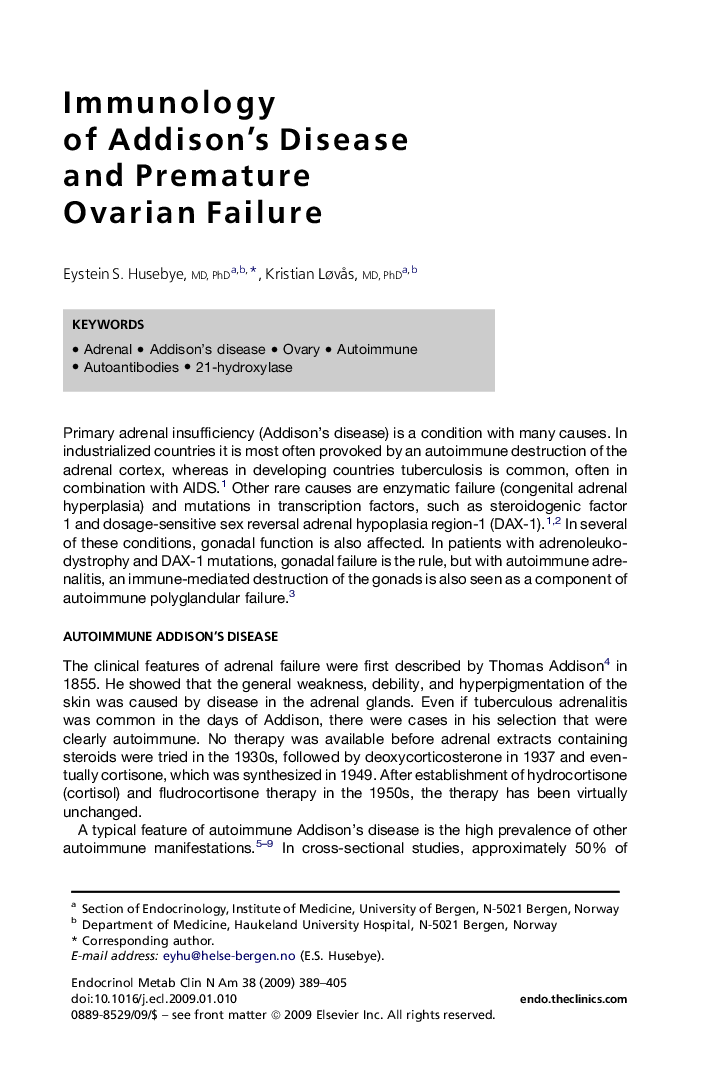| Article ID | Journal | Published Year | Pages | File Type |
|---|---|---|---|---|
| 3268005 | Endocrinology and Metabolism Clinics of North America | 2009 | 17 Pages |
Autoimmune Addison's disease and autoimmune ovarian insufficiency are caused by selective targeting by T and B lymphocytes to the steroidogenic apparatus in these organs. Autoantibodies toward 21-hydroxylase are a clinically useful marker for autoimmune Addison's disease. Autoantibodies to 21-hydroxylase are found in premature ovarian insufficiency, but others also can be present, notably antibodies against side-chain cleavage enzyme. The autoimmune response primarily targets the theca cells, yielding elevated concentrations of inhibin, which is emerging as a useful diagnostic marker for autoimmune etiology of ovarian insufficiency. Little is known about its immunogenetics, but in contrast to Addison's disease, several experimental models of autoimmune premature ovarian insufficiency are available for study.
